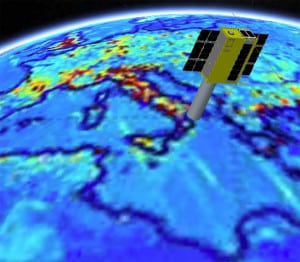[Via Satellite 10-28-2015] NASA has selected the Chair and Professor of Ohio State’s Department of Electrical and Computer Engineering Joel Johnson to lead an agency program to help mitigate the impact of manmade Radio Frequency Interference (RFI). The agency awarded the university $5.6 million for the CubeSat Radiometer RFI Technology Validation (CubeRRT) mission, which aims to demonstrate RFI technologies for Earth-sensing microwave radiometers, enabling scientists to remotely sense global properties such as soil moisture, atmospheric water vapor, sea surface temperature and sea surface winds.
“Successful RFI mitigation by CubeRRT will not only improve the possibility of microwave radiometry in an RFI intensive environment, but may also allow future systems to operate over a larger bandwidth resulting in lower measurement noise,” said Johnson.
Ohio State, one of the four selected projects, is working in partnership with investigators from NASA Jet Propulsion Laboratory and NASA Goddard Space Flight Center. The academic institution is the only national university leading a team for NASA’s In-Space Validation of Earth Science Technologies (INVEST) program.
Johnson’s Ohio State team has focused on detecting and discarding manmade RFI from the Earth’s naturally fluctuating microwave signals since 2001. The team’s RFI system will fly in space as part of a 6U CubeSat measuring 20 cm by 30 cm by 10 cm, with a potential launch date in 2018.
The post Ohio State to Lead NASA Radio Interference CubeSat Mission appeared first on Via Satellite.
